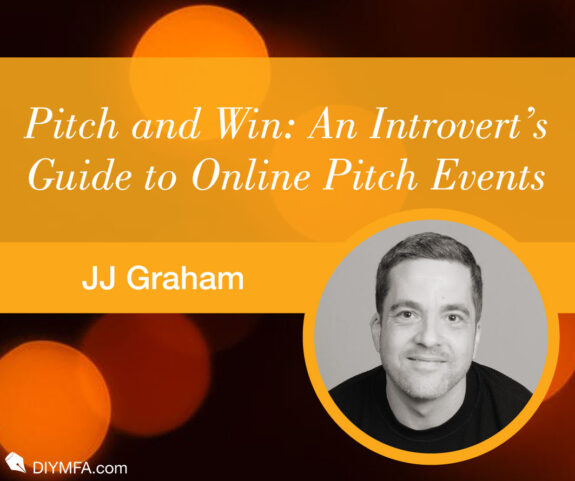Long before coming to terms with being an introvert, I worked the worst job ever. Each morning, my boss gave me a list of names and phone numbers to “cold call.” That meant picking up the phone and trying to get past a gatekeeping administrative assistant to talk to travel coordinators. These people had no idea who I was and most of them hung up before I said more than three words. It was awful.
My boss measured my cold calling success rate to the industry standard of ten percent: one of every ten calls that didn’t hang up and asked for more information. My own success rate was far lower, more like three or four percent.
I didn’t last long in that job.
Fast forward to 2022. My manuscript was polished, and it was ready to send to agents and editors. I died a little when I read that cold querying has the same success rate as cold-calling: if one of ten queries gets a response asking for a full or partial manuscript, I’m doing great.
Ouch. One out of ten… that’s a lot of work, and it brings back memories of that awful little office I shared with my boss. I can still smell the raw onions she ate all the time. Shudder.
So, I looked for ways to stand out to literary agents and acquiring editors without cold querying. Most of the advice I found was for extroverts attending writing conferences:
- Book a timeslot to pitch in person.
- Corner an agent in the elevator after pitches.
- Invite an editor out for a drink to talk about my manuscript.
I don’t know about you, but that sounds worse than smelling raw onions all day.
Thankfully, as the writing world has become more virtual, online pitch events happen throughout the year on Twitter and on other author sites like SavvyAuthors.com. These were perfect opportunities for an introvert to catch the attention of agents and editors without stalking someone at a conference.
I pitched my manuscript to a dozen agents and editors in 2022, and after two back-to-back such online pitch events, an amazing literary agent took me on as a client, and I caught the eye of a really cool small press who offered me a three-book contract. But it took a lot of work before the events to be that successful.
Want to know how I did it? Read on.
Prepare, Prepare, Prepare
Having everything prepared ahead of time saved me from a lot of worry because once manuscript requests came in, things went fast. Writer friends and my mentor had all read through and offered feedback on not only my manuscript but my whole submission package (shameless plug of my previous article: start here to find a writing community).
Don’t know what a submission package is? Here’s a quick rundown:
- Five-page, three-page, and one-page synopses of my manuscript. Each agent and editor wanted something different and I’m so glad I listened to the advice to have each of these ready.
- Query letter.
- Portions of my manuscript I saved in separate files: the first ten pages, the first chapter, the first three chapters, and the first fifty pages. They needed zero editing.
- Author bio written in third-person.
And, of course, I had my pitch nailed down. It was tight and (hopefully) made anyone who read it say, “I’m dying to know more!”
How did I write a good pitch? It was way harder than expected. After all, I’d spent months writing my awesome manuscript, so condensing it down to fifty or twenty words was a tall order. This DIY MFA article is fantastic–these pitches still give me goosebumps.
Thoroughly Research Agents and Editors
The pitch events listed participating agents and editors next to their wish lists. I understood that these folks knew exactly who and what they wanted to represent or publish. I write queer paranormal romance, so I wouldn’t have pitched a publisher looking for cozy mysteries.
The online pitch events said they vetted their participating agents and editors, but they emphasized I had to do my due diligence. I’ll ‘fess up that I didn’t do a good job of this and pitched an agent who wouldn’t ever be a good fit in a million years for me (I’m still cringing thinking about this). I should have gone to Publishers Marketplace and QueryTracker to research each agent and editor before pitching along with a google search. Lesson learned.
Additionally, I created a spreadsheet or list of agents and editors I was going to pitch, what they were looking for, and places to note what I’d sent them and when. This spreadsheet helped me track what I’d sent out and to whom, so following up was a breeze.
The Pitch Event: Go Time
The day of the first pitch event had arrived. My submission package was ready to go, I’d poured myself a big cup of coffee, and I was itching to get your manuscript in the hands of agents and editors.
“Hold up,” I told myself.
Before firing off pitches like crazy, I took a deep breath. I had one chance at this event, and I wanted to do it the right way because each pitch event had very specific rules.
One event required a one-sentence pitch, the other required three sentences. One required a tag or mention of my manuscripts’ genre (i.e., romance, thriller, urban fantasy) that matched what the agent or editor was looking for. I double and triple-checked each pitch before holding my breath and hitting “Send.”
Unfortunately, I saw overenthusiastic authors pitch ten sentences when the event called for a fifty-word pitch. Others attached a query letter, synopsis, and bio instead of just pitching. I also saw authors pitch manuscripts to every agent and editor in the event for genres they were not looking for. Oof.
Guess who responded to pitches that broke the rules? Nobody.
Agents and editors want authors who follow their instructions to the letter because:
- They’re super busy.
- They want clients whom they can easily work with.
I Got Manuscript Requests… Fist Pump!
As requests from interested agents and editors came in over the next two days, I fired off exactly what they asked for and nothing more (except a polite email or cover letter). They were all incredibly specific as to what they wanted. One agent wanted a query letter, a three-page synopsis, and the first one hundred pages through QueryTracker. Another wanted my bio and the first three chapters in the body of an email.
…But Not All Requests Turned Into Offers
Plenty of rejections came my way in the following days. Ouch. I had to remind myself that it was okay. Instead of worrying, I took a break from the business side of writing and practiced some self-care.
Then, almost magically, I got three full manuscript requests that later turned into two offers. I can’t help but think I saved myself a lot of time and heartache not going the cold query route.
Have you participated in any online pitch events? What was your experience? Sound off in the comments!

JJ Graham writes spooky romance. Strong character representation of everyone, including queer and neurodivergent characters are important to him because everybody deserves to see themselves in romance stories.
You can find him on his website and follow him on Facebook, Twitter, and TikTok.







